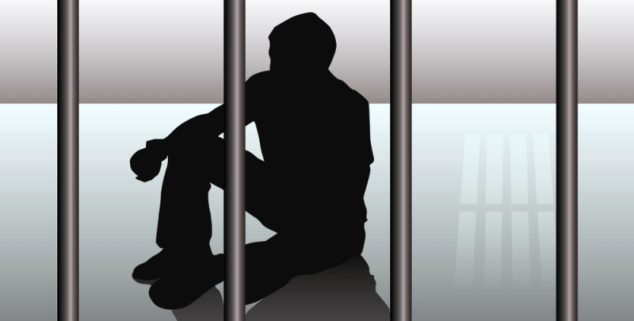Opinion
Call it what you like, but solitary confinement equals torture
 An artist's rendering of an inmate in solitary confinement. (Photo: LaHellen, via Shutterstock)
An artist's rendering of an inmate in solitary confinement. (Photo: LaHellen, via Shutterstock)Prolonged solitary confinement is torture. Whether it is referred to as administrative segregation, secure housing, or protective custody, the effect on an individual is the same. Significant psychological harm, and mental and physical damage that can be permanent.
Study after study has documented just how devastating the practice of solitary can be, and why it has no place in our society. Certain populations are particularly vulnerable to these harms, including people with disabilities, young adults who are still developing, and the elderly.
Many states, including California, continue to employ solitary confinement in jails, prisons and private immigration detention facilities.
To be clear, prolonged solitary confinement is torture, and should not be used against anyone. The United Nations General Assembly recognized this fact in 2015 when it adopted the Nelson Mandela Rules on the treatment of prisoners, classifying prolonged solitary confinement as torture.
Despite the overwhelming evidence pointing to this fact, many states, including California, continue to employ the practice in jails, prisons and private immigration detention facilities.
That is why we are part of a diverse coalition of organizations with expertise in disability rights, criminal justice and immigration detention have come together to sponsor the California Mandela Act on Solitary Confinement by Assemblymember Chris Holden (D-Pasadena). The coalition includes NextGen California, Immigrant Defense Advocates, Initiate Justice and the Prison Law Office, in addition to our organizations.
The Mandela Act was just passed by the Assembly Public Safety Committee and will continue to make its way through the California Legislature, with hopes that it can become law by the end of the year.
The bill, modeled in part on successful legislation passed in New York and Colorado, limits the use of solitary confinement to fifteen consecutive days among other restrictions. The bill also completely bans the use of solitary confinement against pregnant women, the young and elderly, as well individuals with disabilities.
Our goal is simple: to show that California can limit the use of this draconian practice and join the modern world when it comes to treating everyone with dignity and respect.
Until recently California was holding up to 12,000 individuals in solitary confinement every day.
We believe that this is not only possible, but that it is an imperative step in reimagining what our systems of incarceration and detention look like. While opponents of the bill will claim that the use of solitary confinement is an essential tool for these facilities, we believe that torture does not make anyone safer, and only perpetuates cycles of violence and inhumanity in these facilities.
The image of locking someone up and throwing away the key has no place in our society, from a moral or policy perspective.
One might assume that as a progressive state, California has little need for this change, but the truth may shock you. Until recently California was holding up to 12,000 individuals in solitary confinement every day. Amnesty International noted that at least 78 of these individuals were held in solitary for more than 20 years. Advocates have estimated that up to 90 percent of individuals held in special housing units in California prisons were people of color.
Thanks to the work of advocates and impacted individuals, these numbers have been reduced through litigation and organizing efforts, but the need for comprehensive change is made clear by shocking examples from the last few years. This includes a pregnant woman giving birth in the Santa Rita jail, while held alone in solitary confinement.
Our organizations were particularly motivated to pursue a legislation on this issue because of our ongoing commitment to seek justice for the family of Mr. Choung Woong Ahn, a 74-year-old Korean immigrant who was placed in solitary confinement at a for-profit civil detention facility during the COVID-19 pandemic.
Mr. Ahn had a history of mental illness and that, coupled with his age, should have been enough to prevent him from ever being placed in solitary confinement. Unfortunately, he took his own life shortly after being held in isolation during the early months of the COVID-19 pandemic in May of 2020. Now, as we approach the two-year anniversary of death, we hope to use his case and his memory to ensure that what happened to him does not happen again in our state.
Our slogan for the Mandela Act is “Safety, not solitary,” and we believe that California can and must aspire to this goal. That is why the California Mandela Act on Solitary Confinement can and must become law.
—
Editor’s Note: Eric Harris is director of Public Policy Disability Rights California. Bianca Sierra Wolff is executive director of California Collaborative for Immigrant Justice.
Want to see more stories like this? Sign up for The Roundup, the free daily newsletter about California politics from the editors of Capitol Weekly. Stay up to date on the news you need to know.
Sign up below, then look for a confirmation email in your inbox.

Leave a Reply